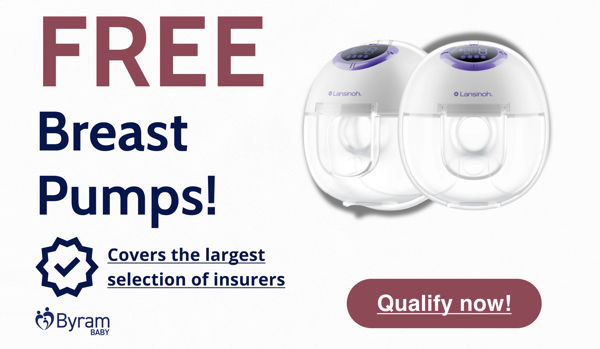We always hear people stating, “Sleep when the baby sleeps,” and chuck at the seeming impossibility of it, but why do they say this? You have just labored for countless hours to birth your baby, or you have had surgery to birth your baby, you are tired, possibly coming off of drugs, and yet there is this tiny newborn who needs your love, attention, milk, and snuggles. It is no wonder that sleep deprivation in the immediate postpartum poses a risk to many new parents trying to find balance in this new and uncertain phase of life.
Sleep Deprivation with a Newborn
Sleep deprivation occurs when a person does not get the proper amount of sleep. In most adults, the appropriate amount is 7-8 uninterrupted hours each night. You might be asking yourself how that is even possible when your lactation consultant told you that the baby needs to be fed every 2-3 hours, no matter the time of day. This does not include their random awake times at night as they figure out their new routine, diaper changes, and taking care of yourself. If you have a partner, there might be ways to get some of the load off, but it is all on you if you are single.
Lack of good sleep is one of the leading causes of postpartum mood disorders. Our brains literally cannot think straight when deprived of necessary sleep. No wonder so many new parents state they have “baby brain” or “pregnancy brain.”
So, we have identified the problem: parents need sleep, and babies need food, snuggles, and to wake often. But now what? Here are some ideas on how to get better rest in the postpartum, and yes, one of the tips is to truly sleep when the baby sleeps.
Ask for Help
The golden amount of uninterrupted sleep for new parents seems to be 4 hours. I have seen an overwhelmed, anxious, and tearful parent come around full circle after one night of getting those 4 hours. One way to achieve this is to have your partner or support person take the baby for those 4 hours, giving them pumped colostrum or milk so that you can sleep. Often, the baby will need to be in a completely different room or floor of the home so that the parent trying to snooze doesn’t hear them and feels the need to wake up and help. I always recommend getting some white noise going because our instincts immediately postpartum are seriously just that good.
Another great tip is to sleep when the baby sleeps. I know, I know, the house needs cleaning, meals need cooking, and other kids are desperate for your attention. But like your baby, you too, have just been born. You must be resting and not doing all of the chores mentioned above. Delegate tasks, hire on care, ask family and friends to pitch in, and sleep when your baby sleeps. Naps can do a lot for sleep deprivation, especially when your baby is still figuring out their nights and days.
Co-sleeping
Co-sleeping is another great tool if done correctly. Following the Safe Sleep Seven, I found that co-sleeping ultimately saved my sanity in the postpartum period. I was able to nurse while sleeping, and my baby got more sleep, too, because they did not even have to wake up to get access to food. Co-sleeping is the norm in most other countries and has been practiced for centuries. When done correctly, it can help new parents get the rest they need while meeting their newborn’s needs.
Ask for help. I mentioned this above, but it is crucial for optimal postpartum health. No matter how super you think you are, you cannot do this baby-raising thing alone. Requesting help immediately after birth is a great way to practice asking for the help you need along this journey. This help can come from a partner, parent, friend, family member, or doula. The help you need might simply be for your partner to do the diaper changes at night since you are the one nursing. It could be that you are bottle feeding, and you need your partner to switch off with you every other night so that you can both get the rest that you need. Maybe the help is with household chores so that you can prioritize resting and not be stressing about your to-do list. Whatever the help is, ask for it. One of the best lessons I have learned in my parenting life is that people want to help. Most just need to be told how they can show up.
It will find you whether you prioritize sleep in your postpartum or not. Sometimes life has to knock us on our butts so that we will take care of our healing bodies, so I recommend not letting it get that far out of hand. You know how to meet all of your newborn’s needs, and the magic of that is that you also intuitively know how to meet all of your postpartum self’s needs. When your baby wants to eat, you feed it. When your baby wants to sleep, you put them to sleep. Care for yourself like you care for your newborn, and you will see how much better you feel.







